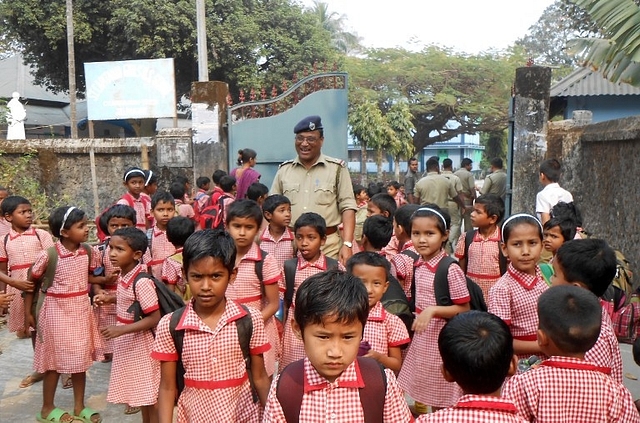
Four-Step Guide To Save India's Future From The RTE
The RTE is failing in its stated mission. Not only that, it is by itself the reason for some acute problems faced by schools in India. What can be done to mitigate its damages?
A well-meaning mistake is the worst kind of mistake. When it is attacked, its defenders argue that their intent is sound, as if that should excuse the terrible outcomes produced by such intent.
The Right to Education Act is a copy-book example of this. Ostensibly, it was enacted to improve learning outcomes in public schools, to enable access to private schools for the poor, and to introduce a regulatory framework for ensuring continuous improvements in both public and private schools.
On all these counts, it is failing. Nation-wide, the pass percentages for government school students taking graduation exams has dipped to unacceptably low levels. Meanwhile, private schools have grown resentful of the Act and the inspector raj that it has spawned in the education departments, and investors in the education sector are rethinking their plans. Many schools have opted to close down rather than continue under the new regime. As for regulation, the less said the better.
But the minute all of this is pointed out, the first response one hears is a rhetorical claim that the Act is well-intended. Intent, however, is a false promise; only outcomes matter.
The RTE Act now has to be amended to have any chance of succeeding. And unless this is done, the harm that is already being wrought will get much worse.
Four steps will help.
One, the regulation of the education sector has to be separated from the Education Departments of the states. The regulator should be able to oversee the functioning of both public schools and private schools.
Second, unaided schools should be exempt from this law, and instead be brought under a new voluntary-mandatory mix like has been done for CSR in companies. It makes no sense for both aided and unaided institutions to have the same financial obligations. The latter should be required to spend 10% of their revenue on the education of poorer children, either by admitting them, or by funding their education in public schools, and disclosure of this should be mandatory with their annual filings.
Third, the exemption granted to minority (both religious and linguistic) institutions should be removed. If the concern is the admission and education of all children without regard to economic background, then, that cannot become hostage to any other consideration. The exemption, as it stands now, is perversely pushing secular individuals to seek the protection of religious personal law.
And finally, learning outcomes in every school must be measured, and put in the public domain, and also given to parents and local elected representatives each year. And accountability for performance has to be brought in, possibly by devolving the running of government schools to municipalities and village panchayats.
What we now have is a ‘right to attendance’ and a ‘right to food’ regime in schools which totally disconnected from learning. Across the country, only 1 child out of 3 in public schools is graduating, and another 1 out of 3 is not even taking the graduation test. If we want to avoid serious social consequences from this in the future, we have to act now.
But, if we keep pretending that ‘well-meaning’ is an acceptable substitute for ‘well done’, we will end up failing one more generation of young people.